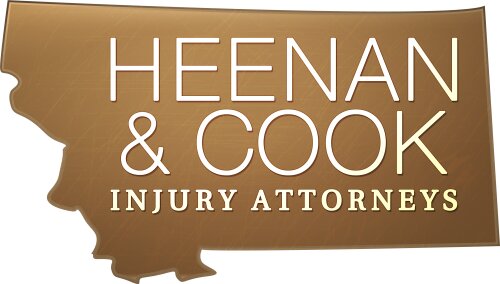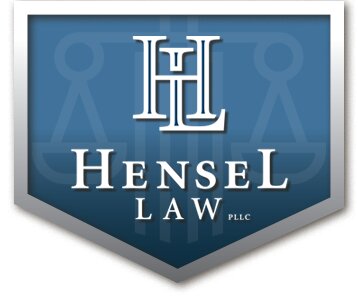Best Antitrust Litigation Lawyers in Billings
Share your needs with us, get contacted by law firms.
Free. Takes 2 min.
List of the best lawyers in Billings, United States
About Antitrust Litigation Law in Billings, United States
Antitrust litigation in Billings revolves around protecting competition in the U.S. market. The core laws aim to prevent price fixing, market division, monopolistic practices, and other conduct that harms consumers and small businesses. Federal enforcement offices and private litigants work together to challenge anticompetitive behavior in Montana and nationwide.
Most civil antitrust claims arise under federal statutes such as the Sherman Act, the Clayton Act, and the Federal Trade Commission Act. Private lawsuits can seek injunctions and, in many cases, treble damages or attorney fees, depending on the statute cited. Understanding whether your claim is rooted in price fixing, monopolization, or unlawful mergers is essential to choosing the right legal path.
In Billings, antitrust matters are typically filed in the U.S. District Court for the District of Montana, which serves residents of Yellowstone County and surrounding areas. Local practitioners often coordinate with federal authorities when disputes involve multi state or nationwide effects. A Montana-based antitrust attorney can help assess jurisdiction, evidence, and remedies in the Billings context.
Key antitrust statutes include the Sherman Act, the Clayton Act and the Federal Trade Commission Act. These laws are enforced by the U.S. Department of Justice and the Federal Trade Commission.
For foundational information on enforcement and guidance, see the U.S. Department of Justice and Federal Trade Commission pages on antitrust laws. These agencies provide public resources on how antitrust cases are investigated, what constitutes illegal conduct, and how private parties can seek relief.
U.S. Department of Justice - Antitrust Division and Federal Trade Commission - Antitrust Laws are authoritative sources for federal antitrust principles and procedures. For Montana specific law, see the Montana Legislature and state resources.
Why You May Need a Lawyer
Antitrust issues often involve complex facts, extensive documents, and sophisticated damages theories. A skilled attorney can help you identify the correct legal theories, gather necessary evidence, and manage coordination with federal or state authorities.
- A local hospital network or clinic may engage in practices that reduce competition in the Billings health care market, potentially triggering antitrust scrutiny or claims.
- Two or more Billings area suppliers could fix prices for a commonly purchased good or service, leading to higher costs for local businesses and consumers.
- Local construction firms might participate in bid rigging for a public works project, undermining fair competition in Yellowstone County.
- A dominant retailer could impose exclusive dealing or tying arrangements that foreclose competition in Billings retail markets.
- A merger between nearby companies could lessen competition in Montana markets, raising concerns about price, quality, and innovation in local services.
- A private company in Billings may suffer injuries from unlawful monopolization, restraints on trade, or deceptive practices that distort the market.
In each scenario, an antitrust attorney can help you determine whether a private action is possible, assess potential remedies, and guide you through complex court procedures. Local counsel can also explain how discovery, expert testimony, and class action procedures apply to Billings residents.
Local Laws Overview
Federal Antitrust Statutes
The Sherman Act, enacted in 1890, prohibits agreements that unreasonably restrain trade and prohibits monopolization. It is the cornerstone of U.S. antitrust law and provides private rights of action for damages and injunctive relief.
The Clayton Act, enacted in 1914, expands on the Sherman Act by addressing specific practices that may harm competition, such as mergers and exclusive dealing, and it allows private suits for damages in many circumstances. It helps assess whether a business combination would likely lessen competition in a Billings or Montana market.
The Federal Trade Commission Act, also enacted in 1914, prohibits unfair methods of competition and unfair or deceptive acts or practices. Enforcement can come from the FTC or from private actions when applicable.
These statutes define core antitrust concepts used in Billings litigation, including restraint of trade, monopolization, price fixing, and unlawful mergers. See federal resources for the authoritative texts and interpretations.
Recent enforcement trends have involved updated guidelines and increased scrutiny in sectors such as healthcare, technology, and consumer services. Private and public enforcement continues to evolve with new guidelines and court interpretations.
Public resources summarize the roles of the DOJ and FTC in enforcing federal antitrust laws and providing consumer protection guidance.
For federal guidance and enforcement, you can visit:
Montana and Local Context
Montana enforces state level consumer protection and competition rules through the Montana Unfair Trade Practices Act. This law prohibits unfair methods of competition and unfair or deceptive acts or practices in trade and commerce within Montana, and it provides a framework for private actions and enforcement in the state courts.
The Montana Code Annotated (Mont. Code Ann.) sections codify these protections and are amended periodically. Practitioners should verify the current text on the Montana Legislature site to reflect any changes that affect antitrust claims in Billings and surrounding areas.
Working with a Billings attorney who understands both federal antitrust law and Montana state consumer protection rules can help tailor claims to local markets and jurisdictions.
Frequently Asked Questions
What is antitrust litigation in simple terms?
Antitrust litigation challenges conduct or mergers that harm competition. It can involve private lawsuits seeking damages or injunctions to stop illegal behavior.
What is the Sherman Act used for in Montana?
The Sherman Act prohibits unreasonable restraints of trade and monopolization. In Billings, plaintiffs may file federal antitrust claims in the District of Montana.
How do I know if I have a private antitrust claim?
Key indicators include price fixing, bid rigging, market allocation, or unlawful mergers that reduce competition. A lawyer can review contracts, communications, and market data to assess viability.
What is the difference between price fixing and bid rigging?
Price fixing means competitors agree on prices. Bid rigging involves collusion to control bidding outcomes for a contract or project.
Do I file in federal court or state court for antitrust issues?
Private antitrust actions typically arise under federal law in federal courts, though some state law claims may be filed in state court. In Billings, many cases proceed in the District of Montana.
How long do antitrust cases take in Billings?
Case durations vary widely. Simple matters may resolve within months; complex matters with extensive discovery can take years.
How much does it cost to hire an antitrust attorney?
Costs depend on case complexity, hourly rates, and fee arrangements. Some firms offer contingency or partial retainer options for certain private actions.
Do I need a Montana-based attorney for Billings matters?
Local knowledge helps, especially for procedural rules and local court practices. A Montana-based attorney can coordinate with national firms if needed.
Can I join a class action for an antitrust issue in Billings?
Yes, some antitrust disputes are resolved through class actions. Your eligibility depends on the case posture and your damages or interests.
Should I gather documents before contacting a lawyer?
Yes. Collect contracts, communications, invoices, market data, and any filings. Primary documents speed up evaluation and review.
Is there a statute of limitations for antitrust claims in Montana?
Antitrust claims have specific statutes of limitations depending on the claim type and jurisdiction. A local antitrust attorney can explain the timelines that apply to your case.
Additional Resources
- U.S. Department of Justice - Antitrust Division - Federal enforcement, case filings, and guidance on antitrust law.
- Federal Trade Commission - Antitrust Laws - Federal guidance and enforcement actions related to competition and consumer protection.
- Montana Legislature - Official source for Mont. Code Ann. and amendments related to antitrust and consumer protection.
Next Steps
- Define your antitrust issue clearly by listing suspected conduct, dates, and involved entities. Aim to identify whether the claim relates to price fixing, monopolization, or improper mergers. Timeline: 1-2 weeks.
- Search for a Billings or Montana-based antitrust attorney with relevant experience. Check case histories, bar standings, and client reviews. Timeline: 1-3 weeks.
- Schedule consultations with 2-3 lawyers to discuss your facts, potential theories, and remedies. Bring all documents gathered so far. Timeline: 2-4 weeks for initial meetings.
- Ask about fees, retainer structures, and anticipated costs. Obtain a written engagement letter outlining scope, responsibilities, and milestones. Timeline: 1 week after consultations.
- Decide on a lawyer and begin formal discovery planning. Create a document plan for collecting communications, contracts, and market data. Timeline: 2-6 weeks to finalize discovery plan.
- Begin formal proceedings if appropriate, including drafting pleadings, coordinating with any co plaintiffs or agencies, and establishing a litigation timeline. Timeline: several months to start, with variability by case complexity.
Lawzana helps you find the best lawyers and law firms in Billings through a curated and pre-screened list of qualified legal professionals. Our platform offers rankings and detailed profiles of attorneys and law firms, allowing you to compare based on practice areas, including Antitrust Litigation, experience, and client feedback.
Each profile includes a description of the firm's areas of practice, client reviews, team members and partners, year of establishment, spoken languages, office locations, contact information, social media presence, and any published articles or resources. Most firms on our platform speak English and are experienced in both local and international legal matters.
Get a quote from top-rated law firms in Billings, United States — quickly, securely, and without unnecessary hassle.
Disclaimer:
The information provided on this page is for general informational purposes only and does not constitute legal advice. While we strive to ensure the accuracy and relevance of the content, legal information may change over time, and interpretations of the law can vary. You should always consult with a qualified legal professional for advice specific to your situation.
We disclaim all liability for actions taken or not taken based on the content of this page. If you believe any information is incorrect or outdated, please contact us, and we will review and update it where appropriate.










